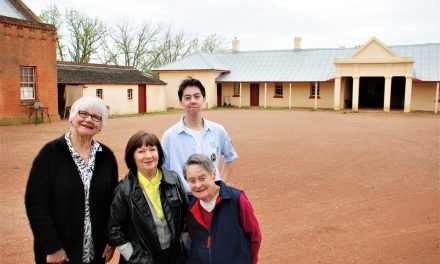As Mother’s Day approaches on the 14th, those whose maternal care goes above and beyond normal situations deserve some spotlight. As a result, the Times got in touch with local Wildcare volunteer Catherine Burgess, whose transferable skills as a mother have aided her role in the rehabilitation of local injured wildlife, extending her time, commitment and care to her menagerie of kangaroos and joeys.
“If you’ve been a mother, you’re used to the commitment of the long and irregular hours. You can’t be selfish”, summarised Catherine.

Some of the joey orphans Catherine has cared for over the years
While growing up in Townsville, Catherine started caring for injured wildlife at a young age, rescuing wallabies that had been left on the roadside after being hit by cars. After making a career change, Catherine relocated to Yass, deciding to reapproach her previous interest with the necessary qualifications and experience. Catherine joined Wildcare, a non-profit organisation or charity (as it isn’t funded, relying on personal volunteer time and money or through fundraising events) that started as Australian Koala Hospital Association Incorporated before branching out into a wider wildlife charity. Receiving training, licensing and education in the care of injured wildlife, Catherine returned to her passion. While the local organisation branch covers many regional areas, such as Young, Gundaroo, Gunning, Queanbeyan, Bungendore, Boorowa and towards Thredbo, Catherine and co-carer, Lisa Low, cover injured wildlife from Hall to Boorowa, and often outwards to Gunning.
Typically taking in younger Joeys, often abandoned by their mothers or orphaned by car incidents, Catherine is currently caring for two Joeys, weighing in as little as 500 and 750 grams, respectively. These Joeys have high demands, requiring anywhere between every three to five hourly feeds. The joeys, as well as other injured wildlife, are typically referred by Yass Valley and Murrumbatemen vets, who help with reduced fees and costs. Should someone find injured wildlife, Catherine recommends calling Wildcare on 6299 1966, who – when the case is local – call and transfer the animals to her.

Playful joeys are kept warm and well fed
“Call someone, it’s a twenty four hour helpline. We go out in all weather, all times of the day or night to rescue”, said Catherine.
Once the Joeys reach between five to just below twenty kilos, the animals join fellow rehabilitated kangaroos on a larger but still enclosed area so that the continuity of care is maintained but the animals are given a more natural experience before release.
The penultimate stage falls at twenty kilos where, in groups, they are released into a pre-release property, safely maintained from predators and poachers, before another four weeks pass and the gate is opened, fully releasing them back into the wild. Unfortunately, not all joeys or kangaroos, make it through their journey, which makes it hard for volunteers like Catherine;
“I can tell you right now, it goes from greatly rewarding to great heartbreak. It’s tough”
Sharing a story with us, of both a sombre and optimistic tone, Catherine recalled a particular Joey, orphaned after its mother was too injured to be cared for and unfortunately euthanised. Catherine cared for the otherwise healthy joey she found in its pouch.
The joey is now in the pre-release pen, a grown and healthy kangaroo. It is one of many animals that will go on to have a healthy life in the wild, despite all odds, thanks to Catherine’s dedicated care for orphaned wildlife.
- WILDCARE 24/7 helpline: 6299 1966
Photo at top credit: Ben Holgate
Griffin Palen








